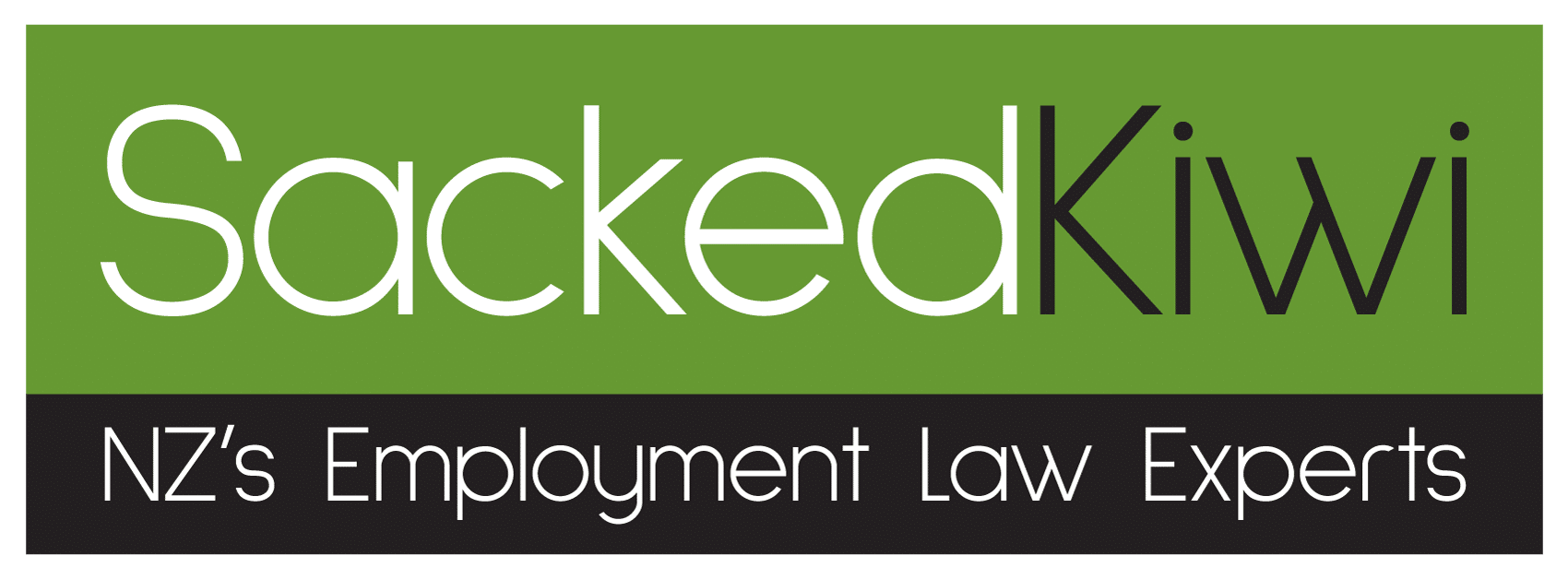Free Employment Law Advice in New Zealand
At Sacked Kiwi, we specialize in employment law advice for employees, offering reliable support to protect your rights and help you understand the legal options available. Whether you’re dealing with unfair dismissal or workplace bullying or need general advice, our team is here to guide you.
Navigating employment issues in New Zealand can be challenging, especially when faced with unfair treatment or complex legal questions.
Choose Sacked Kiwi for Employment Law Advice
Where to get free employment law advice?
Not sure where to start? Sacked Kiwi offers free employment law advice through our toll-free helpline. Whether you’re experiencing unfair treatment, unclear employment terms, or wage disputes, you can get quick, professional guidance.
- Immediate Help: Call our free hotline for advice on your situation.
- No Obligation: Our free advice service provides an overview of your options, so you can make an informed decision.
- Confidential Conversations: All discussions are kept private and secure.
We’re here to support you—no judgment, no hidden costs. If your case falls under our No Win No Fee contingency policy, we will refer you to one of our advocates.
No Win No Fee Representation and Advice
When you’re facing a workplace dispute, you need expert guidance and reliable representation. At Sacked Kiwi, we’ve resolved countless employment cases, and our clients trust us for our compassionate approach and remarkable results. Here’s what makes us stand out:
- Proven Success: With over 90% success in resolving disputes, we’ve built a reputation for achieving positive outcomes for employees across New Zealand.
- No Upfront Costs: We work on a No Win No Fee contingency basis; what this means is our costs are only payable on success or if you withdraw.
- Dedicated Advocacy: Our legal experts specialize in New Zealand employment law and understand the unique challenges employees face.
- Confidential and Supportive: We handle every case with care, ensuring your concerns remain private and your voice is heard.
Specialist Employment Advice from Advocates
Our experienced employment law advocates are specialists in helping employees assert their rights. From wrongful termination claims to workplace harassment cases, we understand how to navigate the complexities of New Zealand’s employment laws to achieve the best results for you. Meet your team of employment law specialists on our Our Team page.
How to Get Employment Law Advice in New Zealand
Seeking employment law advice is simple with Sacked Kiwi. Here are the ways you can connect with our team and get the guidance you need.
Call Our Free Helpline for Employment Law Advice
Pick up the phone and speak directly to one of our employment law specialists. Our friendly team will listen to your concerns and provide immediate insights into your case.
Enquire Online
Prefer to send us a message? Use our online enquiry form for a quick response. Just share the details of your employment issue, and our team will contact you with the next steps.
No Win No Fee Support
Once we’ve reviewed your case, if representation is required, you’ll benefit from our no-win, no-fee support. This structure means you won’t have to worry about legal fees during the process.
Advice for Common Issues
Unfair dismissal occurs in two forms: when an employer terminates an employee without process and when the employer does not have a substantive, valid reason for the dismissal.
Employers often make mistakes in dismissals. If you think you’ve been unfairly dismissed, call our toll-free employment hotline and talk to an expert.
If you are within a 90 day trial period, your employer is still obliged to treat you the same as any other employee who isn’t on a 90 day trial period and cannot disadvantage you in any way in the performance of your duties.
Many employers don’t understand the proper grounds for employment termination during a 90 day trial period and a lot make mistakes. Make sure you check with us if you’re unsure.
A personal grievance in New Zealand refers to a formal complaint, to the Employment Relations Authority, made by an employee against their employer. Simply it allows employees to address employment-related disputes and seek compensation for infringements upon their rights or fair treatment in the workplace.
Want to raise a personal grievance with your employer? Get in touch.
Being made redundant often results from operational changes where your role is no longer required. However, redundancy should always be your employer’s last resort. Before initiating the redundancy process, they must make reasonable efforts to redeploy you into a suitable alternative role within the organization.
If you believe your redundancy is unfair, you may be eligible to lodge a personal grievance. Common signs of an unfair redundancy include:
- Your employer failed to explore alternative roles for you.
- They did not follow the proper consultation process.
- The terms of your employment agreement were not upheld.
Every redundancy situation is unique. If you’re unsure whether your redundancy was handled fairly, seeking expert employment law advice can help clarify your options. Contact us for personalized guidance and support.
Constructive Dismissal happens when an employer’s actions or inactions make working intolerable for an employee, pushing them to resign. It is always essential to seek legal advice before resigning and to document all of the employer’s actions.
- Direct discrimination: Direct Discrimination occurs when someone is treated less favourably than others because of a protected characteristic.
- Indirect Discrimination: Indirect discrimination arises when a policy, rule, or practice that appears neutral has a disproportionately adverse effect on individuals with specific characteristics.
- Harassment: Harassment involves unwelcome or offensive conduct related to a protected attribute that creates an intimidating, hostile, or humiliating work environment.
- Victimisation: Victimisation occurs when someone is treated unfairly because they’ve made a complaint or raised concerns about discrimination.
Everyone has the right to a support person at a disciplinary meeting. Many people find disciplinary meetings difficult, so you should seek an advocate to speak on your behalf and help you through the process.
Why? Disciplinary Meetings are often the first steps an employer takes towards dismissing an employee, so it’s crucial that you have legal representation. Our team of employment law advocates is ready to help.


